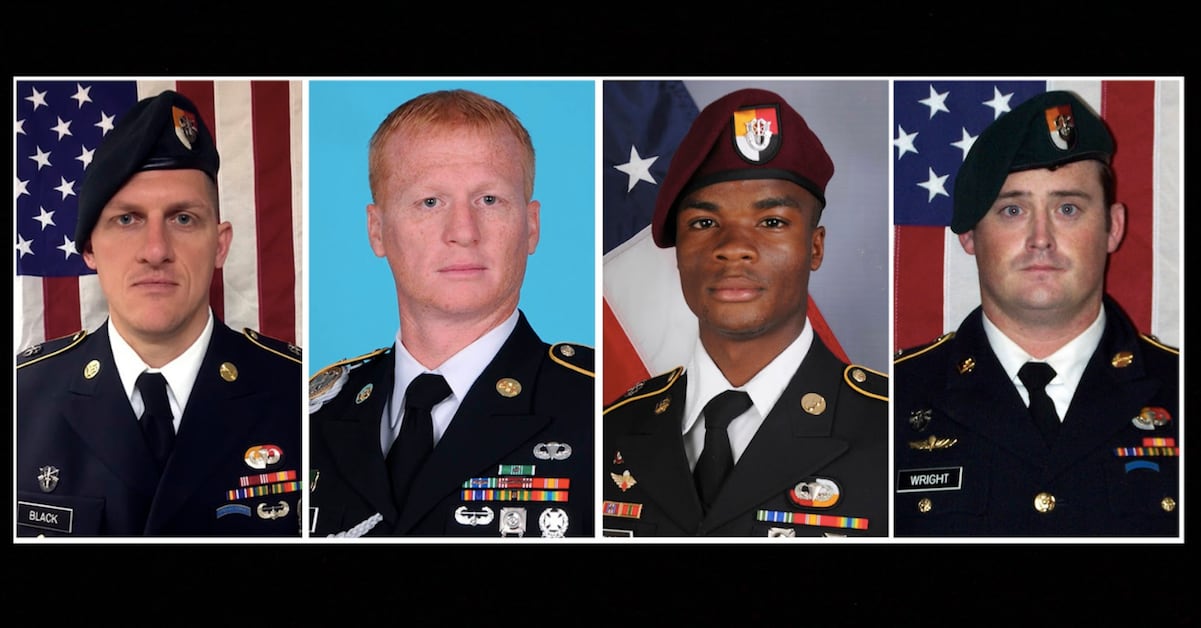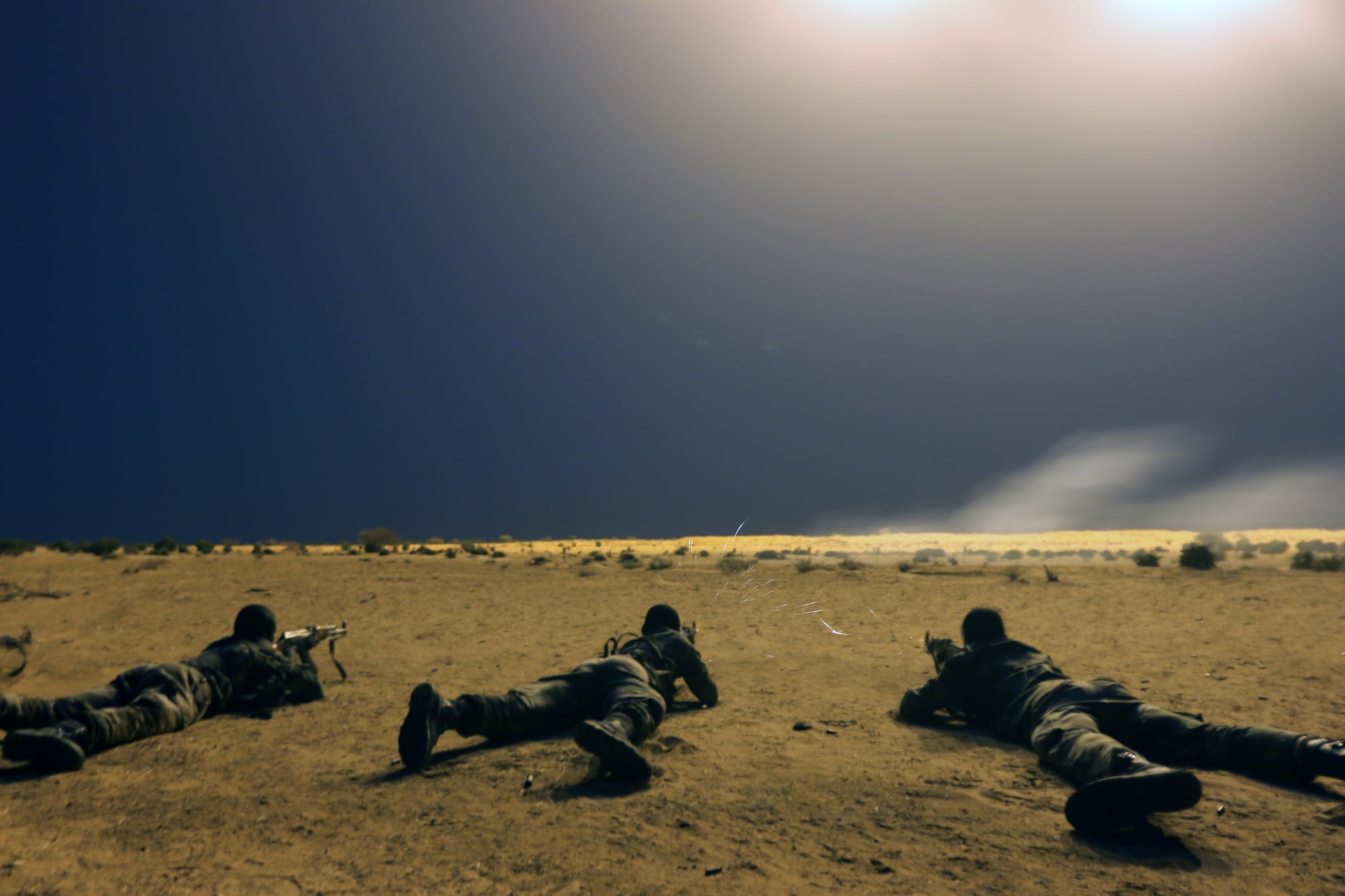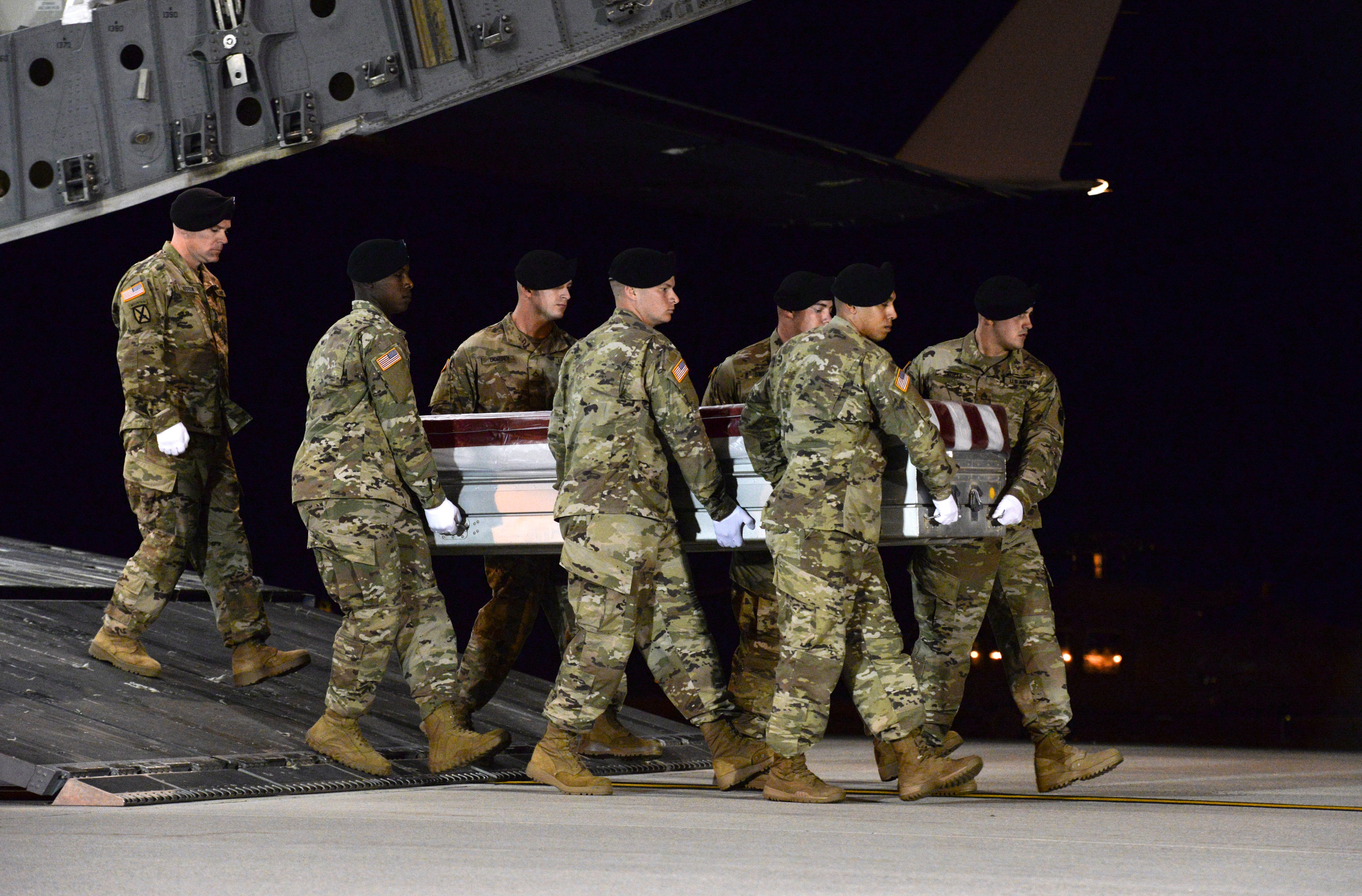After viewing new helmet camera footage recovered last year, Army officials have decided to award the Silver Star medal to one of four U.S. troops killed in an ambush by Islamic State-aligned militants in Niger nearly five years ago, Army Times has learned.
Families of those slain soldiers have argued for years that blame for the botched Oct. 4, 2017, mission was unfairly placed on the 11-man Army Special Forces team that fought through the unexpected attack, rather than the senior officers who greenlit the operation.
Sgt. 1st Class Jeremiah Johnson’s mother, Debra Gannon, said helmet camera footage that militants took from the Americans’ kit helped trigger an upgrade for her son’s award, which was previously a Bronze Star with Valor. But the military’s accusation that the team went off-script on the mission still bothers her.
“I still would like to have somebody get up and apologize and tell everybody that [the team] didn’t go rogue and they damn well performed above and beyond what they had to do,” Gannon told Army Times. “But I am honored that they finally decided to upgrade him.”
RELATED

The new video was quietly recovered during a French operation to kill the leader of the Islamic State in the Greater Sahara this summer. The footage shows Johnson and Staff Sgt. Dustin Wright defending a fatally shot Staff Sgt. Bryan Black as dozens of enemy fighters bound toward them, the mothers of Wright and Johnson told Army Times in November.
Both women were shown the new video by Army officials in the fall. A much shorter, edited version was disseminated by the Islamic State group a year after the ambush outside the village of Tongo Tongo, near the Niger-Mali border.
The new footage “provided a more comprehensive understanding of Johnson’s actions during the ambush, and directly led to the decision for the upgraded award,” Army spokesman Matt Leonard confirmed.
The 2017 ambush pitted the outmanned and outgunned 11 U.S. troops and their 30 Nigerien partners against scores of enemy fighters armed with mortars, truck-mounted heavy machine guns and rocket-propelled grenades.

The winding tale of how the lightly armed team wound up in the melee, and why the military’s investigation placed primary blame on the ground force rather than senior leaders, has been covered extensively, including in a recent ABC documentary, 3212 UN-REDACTED.
At a 2018 Pentagon press briefing, the ambushed team was blamed for poor training and reckless mission planning in their attempt to capture Doundou Chefou, a mid-level commander for the Islamic State in the Greater Sahara.
RELATED

The team leader, Capt. Michael Perozeni, shouldered much of the blame for the ambush until it was revealed that he asked not to continue the mission after the helicopter assault force they were supporting unexpectedly pulled out due to weather issues, according to the redacted investigation.
Perozeni was concerned because his team had been up for 18 hours and still had to travel 25 kilometers through difficult terrain under limited visibility to conduct the raid on their own, the investigation stated. Despite the concerns, the team was directed by their battalion commander in Chad to continue the mission anyway.
Amid the fallout from the ambush, scrutiny placed on U.S. Africa Command highlighted more problems across missions in the region, including poor medical evacuation capabilities and a lack of air support.
In addition to Jeremiah Johnson, Wright and Black, Sgt. La David Johnson was also killed during the 2017 ambush. La David Johnson was separated from his comrades when he and two Nigerien partners were unable to reenter their vehicle due to concentrated enemy fire.
La David Johnson received the Silver Star after firing his weapon until it ran out of ammunition, switching to another gun and making a last stand alone under a tree against an enemy truck and its heavy machine gun.
Wright also received the Silver Star after he “maneuvered multiple times across open terrain through intense and accurate fire from an overwhelming hostile force to protect and recover two of his fallen comrades,” his award citation stated.
Wright was initially recommended for the Medal of Honor in August 2018. But Maj. Gen. Marcus Hicks, who led U.S. Special Operations Command-Africa at the time, downgraded the recommended decoration to a Distinguished Service Cross in September of that year, according to award approval records previously viewed by Army Times.
Gen. Raymond Thomas III, who helmed SOCOM at the time, then downgraded the award again to a Silver Star in December 2018, the records showed.
The team leader, Perozeni, was also initially recommended for a Bronze Star with Valor. That was downgraded to an Army Commendation Medal by Thomas in early 2019.
Jeremiah Johnson’s own Silver Star medal will be presented to his parents in the coming weeks. Johnson’s mother said a new building at Fort Bragg, North Carolina, is also being built for 3rd Special Forces Group — the unit her son was assigned — and that will be dedicated to him as Johnson Hall.
“I’m glad that they’re recognizing him for what he did,” Gannon said, recalling the recently recovered helmet camera footage. “I did watch the head cam. After what I saw him do, yeah, I’m glad they’re recognizing him for that.”
“Jeremiah composed himself after being shot three times and he was still helping Dustin, telling him where the [enemy] shots were coming from, and he was still shooting.”
Kyle Rempfer was an editor and reporter who has covered combat operations, criminal cases, foreign military assistance and training accidents. Before entering journalism, Kyle served in U.S. Air Force Special Tactics and deployed in 2014 to Paktika Province, Afghanistan, and Baghdad, Iraq.
